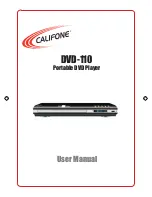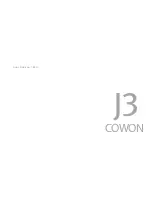
7
EN
G
LI
SH
Caution:
<
Do not play any disc that is warped, deformed or damaged.
Playing such discs could cause irreparable harm to the playing
mechanisms.
<
Printable CD-R and CD-RW discs are not recommended because
their label sides could be sticky and damage the unit.
<
Do not stick papers or protective sheets on the discs and do not
use any protective coating sprays.
<
Use a soft oil-based felt-tipped pen to write information on the
label side. Never use a ball-point or hard-tipped pen, as this could
cause damage to the recorded side.
<
Never use a stabilizer. Using commercially available CD stabilizers
with this unit will damage the mechanisms and cause them to
malfunction.
<
Do not use irregularly-shaped discs (octagonal, heart-shaped, busi-
ness card size, etc.). CDs with these shapes could damage the unit.
Handling precautions
<
Always place the disc on the disc tray with the label side up. Only
one side of a Compact Disc can be played or used for recording.
<
To remove a disc from its storage case, press down on the center
of the case and lift the disc out, holding it carefully by the edges.
How to remove the disc
How to hold the disc
Storage precautions
<
Discs should be returned to their cases after use to avoid dust and
scratches that could cause the laser pickup to “skip.”
<
Do not expose discs to direct sunlight or high-temperature and
humidity for extended periods. Long exposure to high tempera-
tures will warp discs.
<
CD-R and CD-RW discs are more sensitive to the effects of heat
and ultraviolet rays than ordinary CDs. It is important that they are
not stored in locations where they will be exposed to direct sun-
light. They should also be kept away from sources of heat, such as
radiators and heat-generating electrical devices.
Maintenance
<
If a disc becomes dirty, wipe its surface radially from the center
hole outward towards the outer edge with a soft, dry cloth.
<
Never clean discs using chemicals such as record sprays, antistatic
sprays and fluids and thinner. Such chemicals will do irreparable
damage to the disc’s plastic surface.
If you are in any doubt as to the care and handling of a CD-R or
CD-RW disc, read the precautions supplied with the disc or contact
the disc manufacturer.
About MP3/WMA files
This unit can play MP3/WMA files that are on CD-R/CD-RW discs.
Audio file formats that can be played
MP3 (“.mp3” extension)
Bit rate: 8–320 kbps
Sampling frequency: 16–48 kHz
WMA (“.wma” extension)
Bit rate: 48–192 kbps
Sampling frequency: 32, 44.1, 48 kHz
DRM (digital rights management) is not supported.
File information display
The display of this unit can only show single-byte letters and numbers.
<
If a file information uses Japanese, Chinese or other double-byte
characters, playback is possible but the name will not be shown
correctly. In such cases, “
” is displayed.
Cautions when preparing MP3/WMA files using a computer or
other device
<
Always add the correct extension to the file name. Files without
extensions cannot be recognized.
<
Always close the session (complete disc creation). This unit cannot
play discs if the session has not been closed.
<
Carefully read the manual for the software that you are using when
you create an MP3/WMA disc.
Discs that are unplayable or only partially playable
<
Files without extensions cannot be played. Files that are not in the
MP3/WMA format cannot be played even if they have extensions.
<
Variable bit rate files might not play back correctly.
<
If the disc has more than 999 files or 255 folders, this unit can only
play back the first 999 files and files in the first 255 folders.
<
Depending on disc conditions, this unit might not be able to play a
disc or skipping might occur.
Summary of Contents for CD-P1260MKII
Page 143: ...143...








































